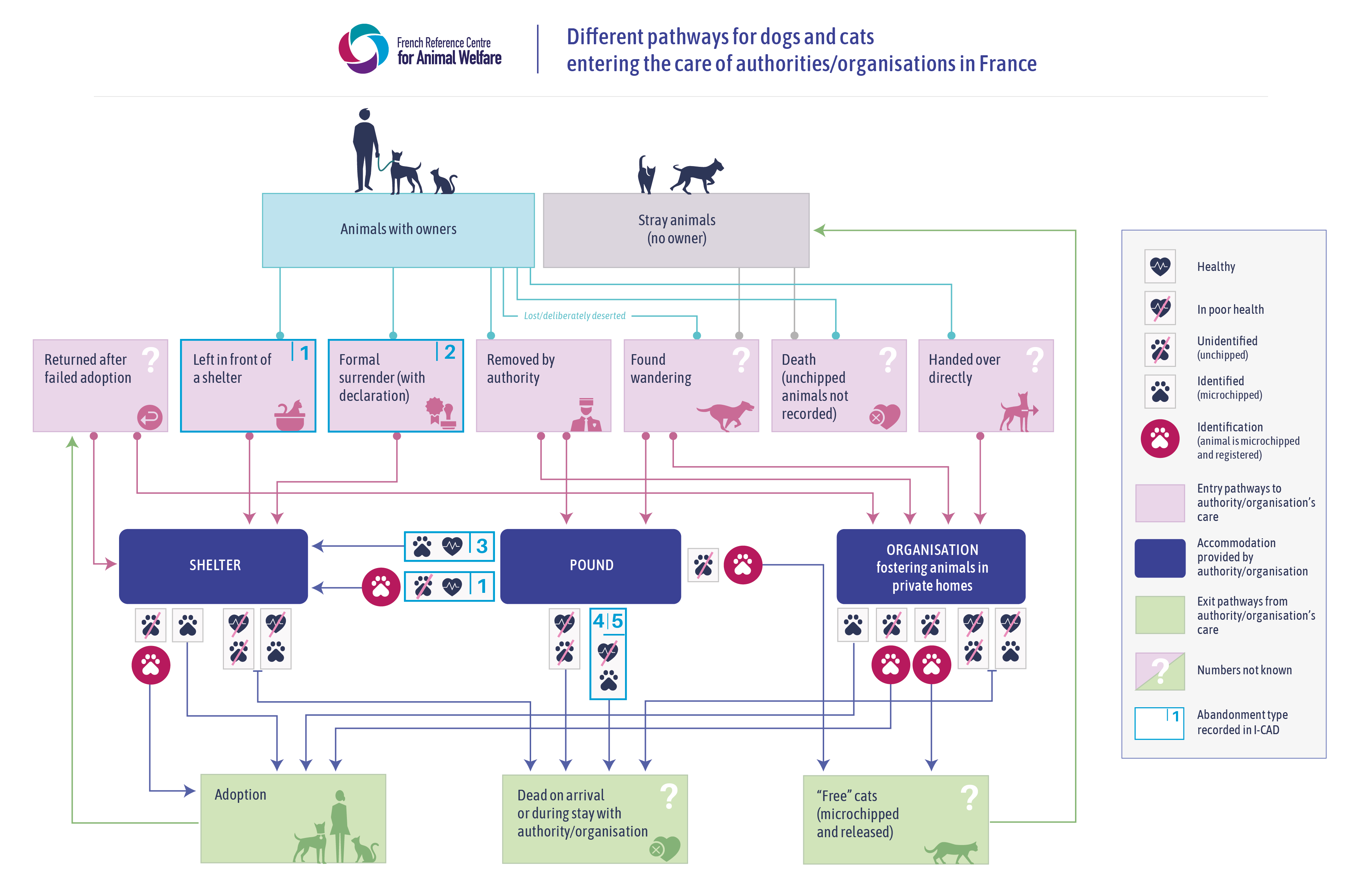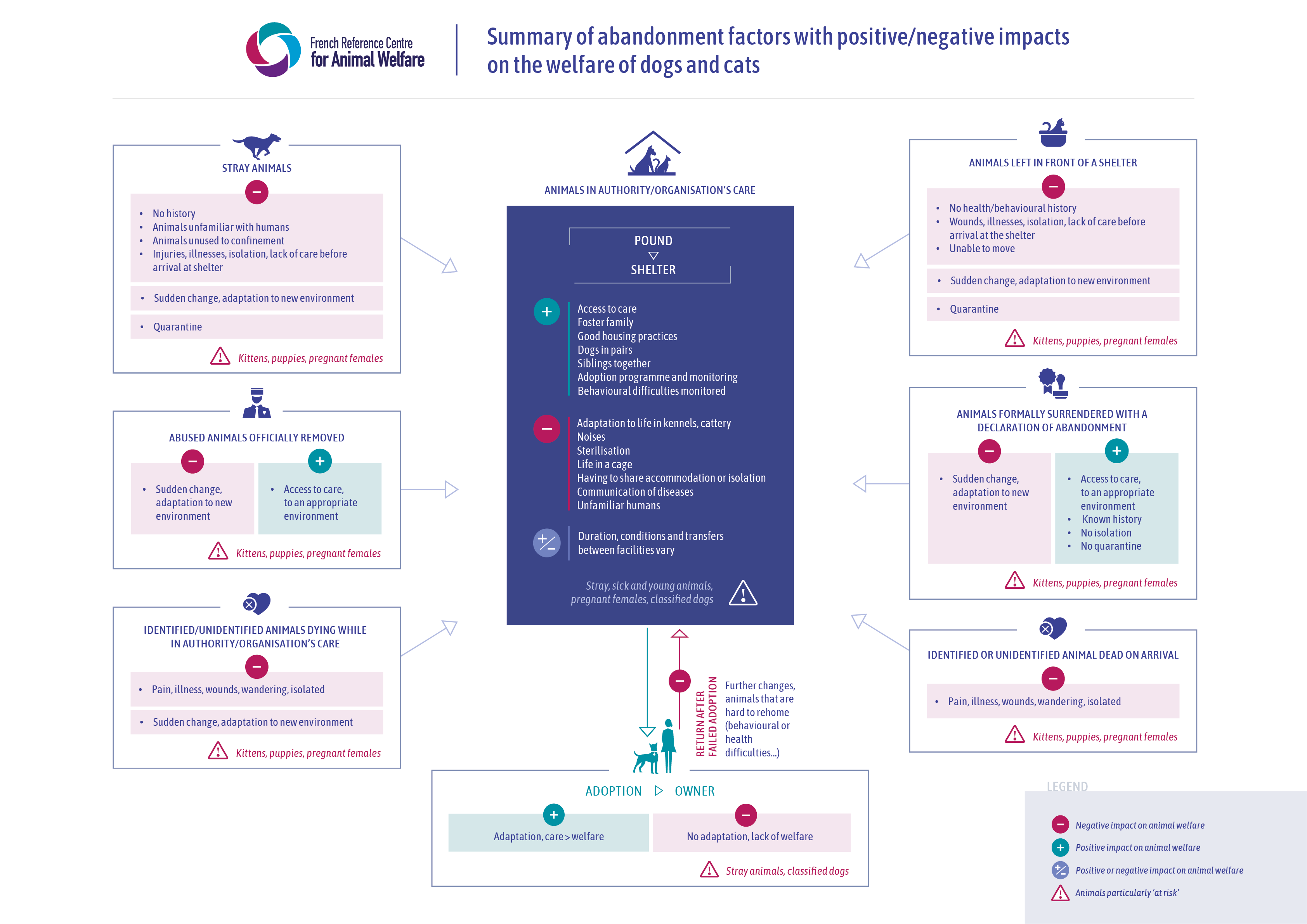Full title: Opinion of the FRCAW on the first actions to be taken within the framework of the Observatory for the Protection of Domestic Carnivores (OCAD)
Requested by: OCAD Steering Committee (COPIL)
Date of request: 09/11/2021
Delivery date: 04/03/2022
DOI: 10.17180/p5dn-3y69
Context
The fight against animal abandonment figures as a major societal concern in France but there are still very few studies on the issue. Such studies are nevertheless essential to the provision of better guidance for public policy on this subject.
In 2021, as part of the French recovery plan, 20 million euros were allocated to an action plan to tackle abandonment. One element of this action plan is the creation of an Observatory for the Protection of Domestic Carnivores (OCAD), to be comprised of a steering committee, administrative support and an expert body, and whose main mission is to generate and communicate knowledge on the protection of these animals and to propose pathways for the improvement of public policy.
The primary mission requested of the expert body (FRCAW) is to carry out an analysis of the current information on dogs and cats abandonment in France, and:
- to propose initial hypotheses on the causes of abandonment and/or the risk factors associated with every possible status that could affect animal welfare,
- to suggest additional data to be collected,
- to suggest actions to be carried out by OCAD members.
Main conclusions of the FRCAW
The conclusions are presented in the form of recommendations throughout the document and summarised in Table 16.
This report constitutes a first audit of the available data on abandonment. It does not claim to be comprehensive, but it provides a certain number of facts to be communicated and shared. It also formulates attention points for consideration that would furnish a better understanding of the mechanisms of abandonment, thus making it possible to implement more efficient and effective measures to manage the risks and consequences of abandonment. Further analysis could usefully be carried out in the near future by the members of OCAD to confirm and provide more detail on the trends to which this report draws attention. We can note that the relevance of future analysis and the effectiveness of the OCAD’s actions will depend on both a precise definition of abandonment to be adopted by all OCAD stakeholders and on the contribution and transparency of all involved.
Many actions must still be taken simultaneously and across the spectrum, both upstream of abandonment, as a means to avoid overcrowding in shelters and save the animals avoidable stress and suffering, and downstream of abandonment, to ensure the best possible care is taken of abandoned animals. The FRCAW notes, in particular, the need for further investigation of the welfare consequences of abandonment in domestic carnivores.
Infographics
Different pathways for dogs and cats cared for by the various rescue organisations in France
Summary of abandonment factors with positive and negative impacts on the welfare of dogs and cats





